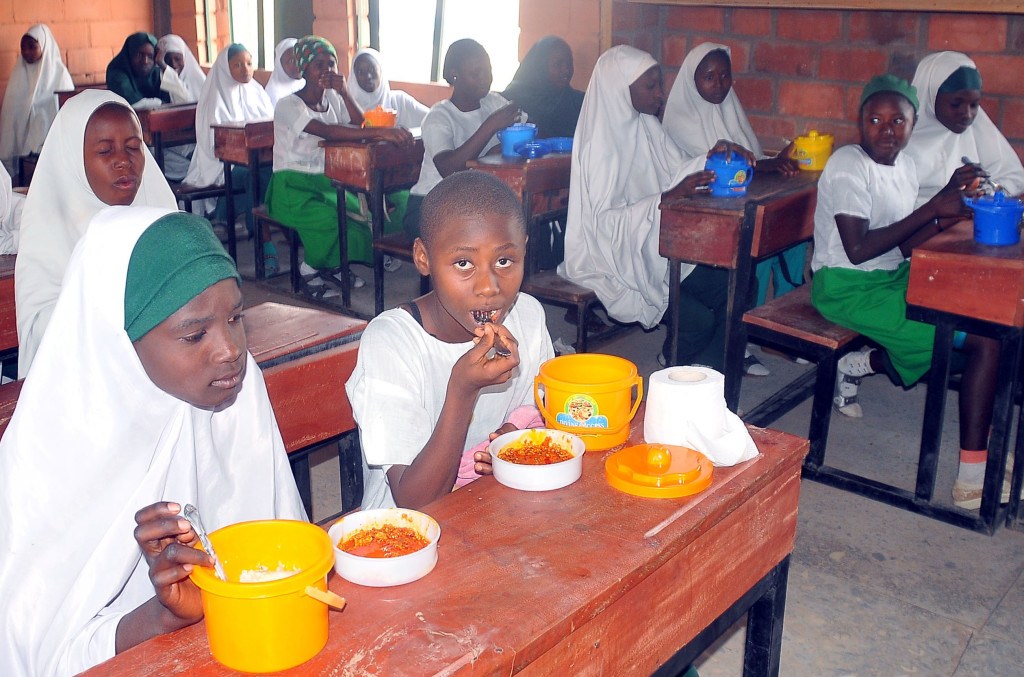The Federal Government has announced plans to expand its school feeding initiative to cover no fewer than 50 million primary school pupils across the country by 2026.
Dr. Aderemi Adebowale, National Programme Manager of the National Social Investment Programme Agency (NSIPA), disclosed this in Abuja during an interview with the News Agency of Nigeria on Sunday.
According to Adebowale, the government is working to strengthen the National Home-Grown School Feeding Programme (NHGSFP) to include pupils from primary one to six, as well as out-of-school children.
“We are working to include early years – primary 1 to 3, primary 4 to 6 – in the school feeding programme, and also out-of-school children, which we are handling step by step. So, by the year 2026, we are looking at feeding close to 50 million pupils in Nigeria,” she said.
Adebowale noted that the government has pegged the cost of a daily meal per child at between ₦500 and ₦1,000, insisting that even at the lower threshold, pupils can still be served “nutritious and delicious” meals.
She explained that the programme would rely heavily on smallholder farmers, aggregators, and local suppliers to maintain cost efficiency and ensure sustainability.
“With this alignment, we’ll be able to control price from the rock bottom. We are not going to be doing market prices. We will agree on prices with our suppliers, agri-vendors and farmers to arrive at a reasonable cost per plate. Once we do that, we will follow up on payment and service delivery,” Adebowale said.
The government had earlier in May inaugurated the Alternate Education and Renewed Hope National Home-Grown School Feeding Project, aimed at providing meals for 20 million out-of-school and underserved children by 2026.
The initiative, launched by the then Minister of Humanitarian Affairs and Poverty Reduction, Prof. Nentawe Yilwatda—now the National Chairman of the ruling All Progressives Congress—was introduced as part of President Bola Tinubu’s Renewed Hope agenda marking his second year in office.
The feeding programme is being implemented in collaboration with the National Commission for Almajiri and Out-of-School Children Education and the National Identity Management Commission (NIMC).
The scheme, government officials insist, will not only fight hunger among pupils but also boost school enrollment and stimulate local agricultural production through the direct involvement of farmers.
Do you want to share a story with us? Do you want to advertise with us? Do you need publicity for a product, service, or event? Contact us on WhatsApp +2348183319097 Email: platformtimes@gmail.com
We are committed to impactful investigative journalism for human interest and social justice. Your donation will help us tell more stories. Kindly donate any amount HERE




